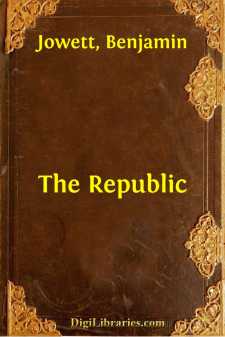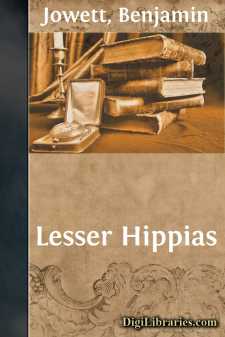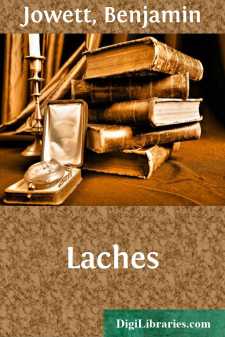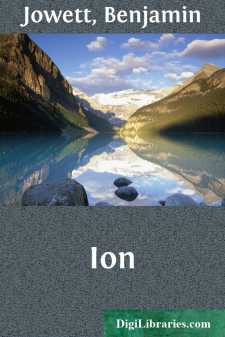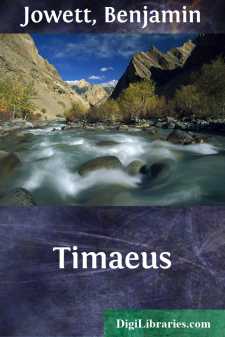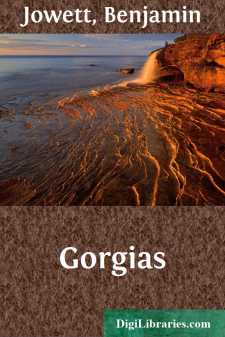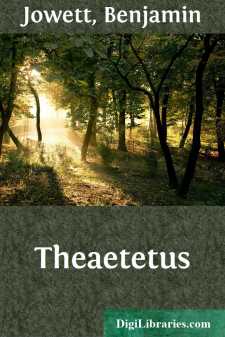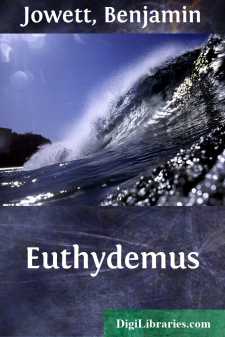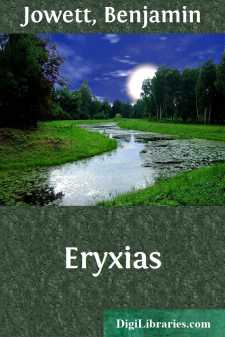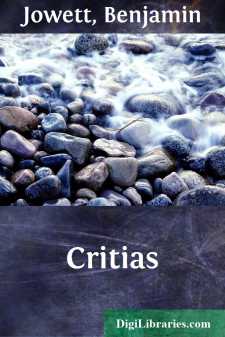Categories
- Antiques & Collectibles 13
- Architecture 36
- Art 48
- Bibles 22
- Biography & Autobiography 813
- Body, Mind & Spirit 142
- Business & Economics 28
- Children's Books 17
- Children's Fiction 14
- Computers 4
- Cooking 94
- Crafts & Hobbies 4
- Drama 346
- Education 46
- Family & Relationships 57
- Fiction 11829
- Games 19
- Gardening 17
- Health & Fitness 34
- History 1377
- House & Home 1
- Humor 147
- Juvenile Fiction 1873
- Juvenile Nonfiction 202
- Language Arts & Disciplines 88
- Law 16
- Literary Collections 686
- Literary Criticism 179
- Mathematics 13
- Medical 41
- Music 40
- Nature 179
- Non-Classifiable 1768
- Performing Arts 7
- Periodicals 1453
- Philosophy 64
- Photography 2
- Poetry 896
- Political Science 203
- Psychology 42
- Reference 154
- Religion 513
- Science 126
- Self-Help 84
- Social Science 81
- Sports & Recreation 34
- Study Aids 3
- Technology & Engineering 59
- Transportation 23
- Travel 463
- True Crime 29
Sort by:
by:
Benjamin Jowett
BOOK I. I went down yesterday to the Piraeus with Glaucon the son of Ariston, that I might offer up my prayers to the goddess (Bendis, the Thracian Artemis.); and also because I wanted to see in what manner they would celebrate the festival, which was a new thing. I was delighted with the procession of the inhabitants; but that of the Thracians was equally, if not more, beautiful. When we had finished...
more...
by:
Benjamin Jowett
APPENDIX I. It seems impossible to separate by any exact line the genuine writings of Plato from the spurious. The only external evidence to them which is of much value is that of Aristotle; for the Alexandrian catalogues of a century later include manifest forgeries. Even the value of the Aristotelian authority is a good deal impaired by the uncertainty concerning the date and authorship of the...
more...
by:
Benjamin Jowett
INTRODUCTION. Lysimachus, the son of Aristides the Just, and Melesias, the son of the elder Thucydides, two aged men who live together, are desirous of educating their sons in the best manner. Their own education, as often happens with the sons of great men, has been neglected; and they are resolved that their children shall have more care taken of them, than they received themselves at the hands of...
more...
by:
Benjamin Jowett
INTRODUCTION. The Ion is the shortest, or nearly the shortest, of all the writings which bear the name of Plato, and is not authenticated by any early external testimony. The grace and beauty of this little work supply the only, and perhaps a sufficient, proof of its genuineness. The plan is simple; the dramatic interest consists entirely in the contrast between the irony of Socrates and the...
more...
by:
Benjamin Jowett
Section 1. Socrates begins the Timaeus with a summary of the Republic. He lightly touches upon a few points,—the division of labour and distribution of the citizens into classes, the double nature and training of the guardians, the community of property and of women and children. But he makes no mention of the second education, or of the government of philosophers. And now he desires to see the ideal...
more...
by:
Benjamin Jowett
INTRODUCTION. In several of the dialogues of Plato, doubts have arisen among his interpreters as to which of the various subjects discussed in them is the main thesis. The speakers have the freedom of conversation; no severe rules of art restrict them, and sometimes we are inclined to think, with one of the dramatis personae in the Theaetetus, that the digressions have the greater interest. Yet in the...
more...
by:
Benjamin Jowett
INTRODUCTION AND ANALYSIS. Some dialogues of Plato are of so various a character that their relation to the other dialogues cannot be determined with any degree of certainty. The Theaetetus, like the Parmenides, has points of similarity both with his earlier and his later writings. The perfection of style, the humour, the dramatic interest, the complexity of structure, the fertility of illustration,...
more...
by:
Benjamin Jowett
INTRODUCTION. The Euthydemus, though apt to be regarded by us only as an elaborate jest, has also a very serious purpose. It may fairly claim to be the oldest treatise on logic; for that science originates in the misunderstandings which necessarily accompany the first efforts of speculation. Several of the fallacies which are satirized in it reappear in the Sophistici Elenchi of Aristotle and are...
more...
by:
Benjamin Jowett
APPENDIX II. The two dialogues which are translated in the second appendix are not mentioned by Aristotle, or by any early authority, and have no claim to be ascribed to Plato. They are examples of Platonic dialogues to be assigned probably to the second or third generation after Plato, when his writings were well known at Athens and Alexandria. They exhibit considerable originality, and are remarkable...
more...
by:
Benjamin Jowett
CRITIAS. PERSONS OF THE DIALOGUE: Critias, Hermocrates, Timaeus, Socrates. TIMAEUS: How thankful I am, Socrates, that I have arrived at last, and, like a weary traveller after a long journey, may be at rest! And I pray the being who always was of old, and has now been by me revealed, to grant that my words may endure in so far as they have been spoken truly and acceptably to him; but if unintentionally...
more...


